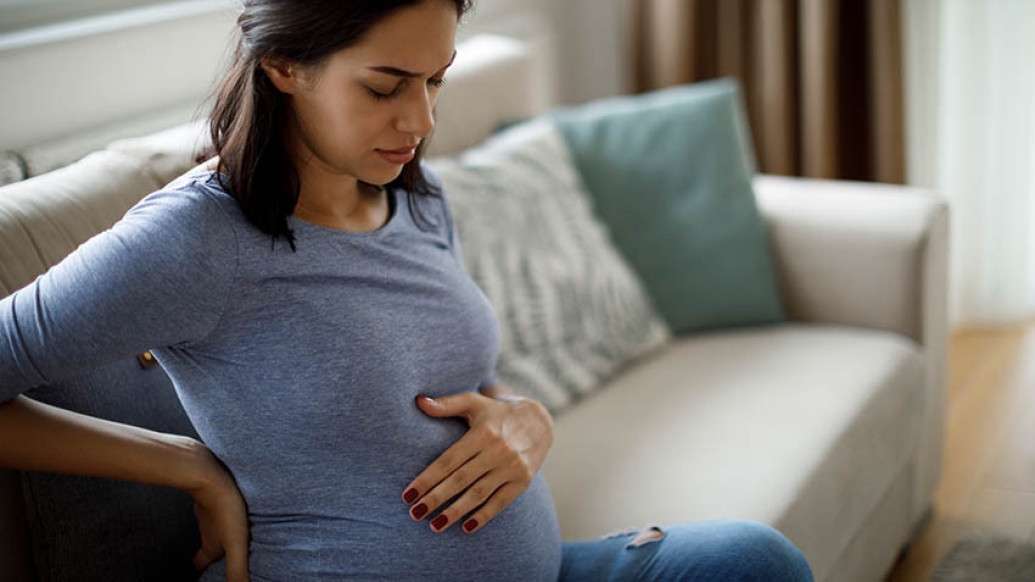The 100th report out of the International Registry of Acute Aortic Dissection details the experiences of 29 women who faced this rare life-threatening complication while pregnant.
8:55 AM
Author |

In a time already full of challenges and changes, some pregnant and postpartum women will also experience a rare but dangerous heart complication: an aortic dissection.
For a new investigation published in JAMA Cardiology, researchers studied the experiences of 29 participants in an international registry who were unexpectedly hospitalized for a dissection while pregnant. Most already had an underlying heart condition, although it was often not yet diagnosed.
SEE ALSO: Growth of Cardio-Obstetrics Care Presents Challenges, Opportunity
Aortic dissections only affect 3 in 100,000 people per year. They cause the layers of the aorta to tear, and blood to pool or leak instead of flowing normally. A patient needs a timely diagnosis and then urgent, life-saving medical attention.
Aortic diseases and conditions like Marfan syndrome or Loeys-Dietz syndrome are usually culprits in women who have a dissection while pregnant, the researchers say, although an association to high blood pressure, the most common risk factor in the general population, may exist, too.
Pregnancy increases risk of dissection
Notably, the researchers found 19% of aortic dissections in women younger than 35 years old were associated with pregnancy. That means a woman already predisposed to have a dissection is more likely to have one during pregnancy, possibly due to hormones and changes to the body during pregnancy and postpartum.
Women in the cohort experienced dissections in all three trimesters of pregnancy in addition to within three months postpartum, although more cases occurred in the latter part of pregnancy and immediately following.
All of the participants who had a Type A aortic dissection, the most dangerous, underwent surgery to repair the dissection. Eighty-five percent of those women with a Type A dissection went into their pregnancies with a known diagnosis such as Marfan syndrome (the most common).
The participants who had a type B dissection were more likely to be given medication, although some received an open or minimally invasive heart surgery.
IRAD's unique opportunity
Given that aortic dissection is already rare, the ability to study a cohort of people who had the condition while pregnant provides an important opportunity, says senior author Kim Eagle, M.D., a director of the Michigan Medicine Frankel Cardiovascular Center and a professor of internal medicine.
"It's important to understand what these women experienced, including their risk factors, underlying medical conditions and ultimate outcomes, in order to learn how best to care for others and to prevent future aortic dissections in this population," he says. Eagle started the International Registry of Acute Aortic Dissection, housed at Michigan Medicine, in 1996. Members include 57 active centers in 13 countries.
SEE ALSO: Registry Helps Move Aortic Dissection Care Forward
Twenty-eight of the 29 patients in the IRAD registry who had a dissection during pregnancy survived the hospitalization. The dissections studied in this publication occurred between 1998 and 2018 and the 29 women represent 1% of all women in the registry.
This is the 100th publication to come out of IRAD.
"Twenty years ago, the seminal IRAD paper was published, aptly also in JAMA, detailing the first 454 patients," Eagle says. "Over 10,000 patients and 24 years since data collection began, IRAD continues to influence our understanding and treatment of acute aortic dissection."
"IRAD has been instrumental in characterizing the presentation of aortic dissection, along with better understanding its natural history and the impacts of different therapeutic approaches in the treatment of this very deadly disease," says Himanshu Patel, M.D., a cardiac surgeon and professor at Michigan Medicine. Patel leads adult cardiac surgery at the Frankel CVC, and co-leads the international cohort in IRAD.
The rise of cardio-obstetrics
Although aortic dissection is most often seen in older men, this cohort study underscores the importance of careful monitoring of cardiac conditions during pregnancy, researchers say.
Co-author Melinda Davis, M.D., part of the Cardio-Obstetrics team at Michigan Medicine with appointments in both cardiology and obstetrics and gynecology, says pre-pregnancy care for a woman with known aortic disease would include evaluation of maternal and fetal risk, counseling and possible genetic testing, followed by ongoing monitoring and testing.
IRAD is supported by R.L. Gore, Inc., the Ann and Bob Aikens Aortic Fund and The Tom Varbedian Fund for Aortic Research as well as grants from numerous participating IRAD aortic centers of excellence.
Paper cited: "Clinical Features and Outcomes of Pregnancy-Related Acute Aortic Dissection." JAMA Cardiology. DOI: 10.1001/jamacardio.2020.4876.

Explore a variety of health care news & stories by visiting the Health Lab home page for more articles.

Department of Communication at Michigan Medicine
Want top health & research news weekly? Sign up for Health Lab’s newsletters today!





